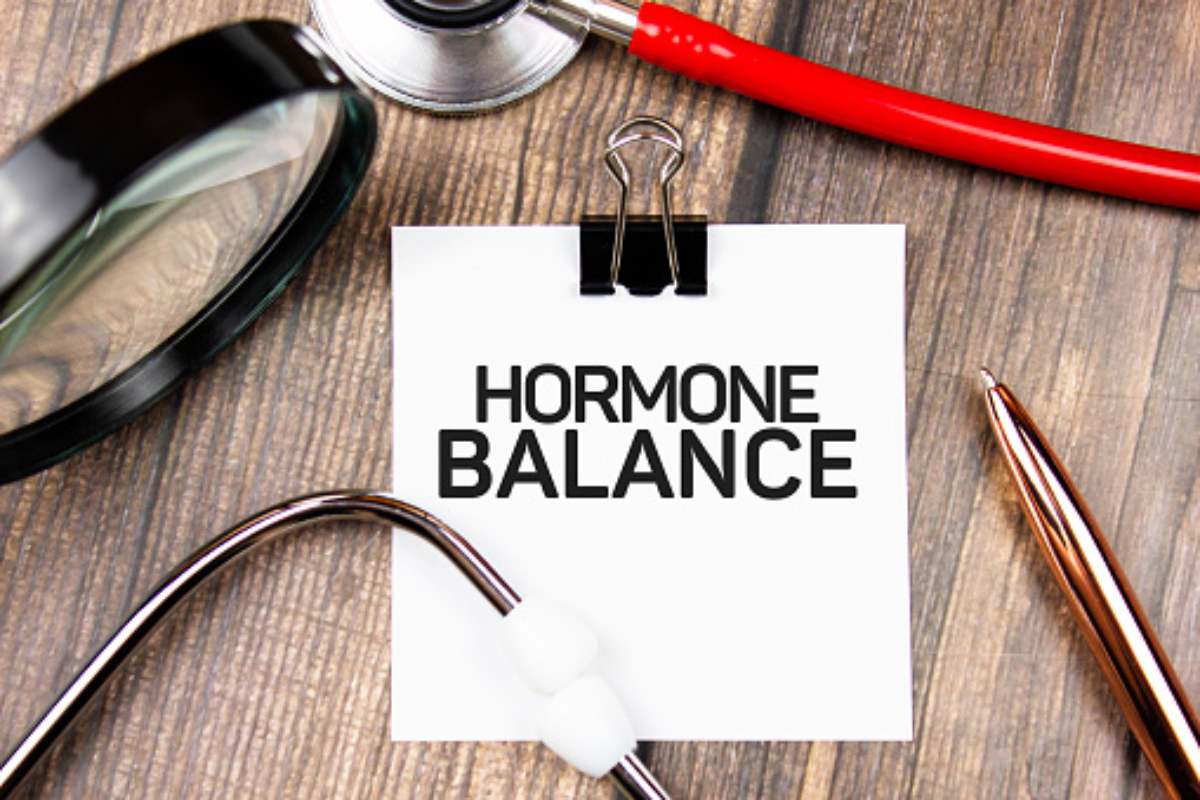The role of probiotics in balancing hormones is an area of ongoing research, but it is believed that they can play a significant role in regulating hormones and improving symptoms associated with hormonal imbalances. Probiotics are beneficial bacteria that are found in the human gut and help promote a healthy balance of gut bacteria, which is essential for overall health and well-being.
Although bacteria and other microbes are sometimes perceived as destructive “germs,” many of them are actually beneficial. . A gut health expert revealed that some bacteria create vitamins, assist break down disease-causing cells, or aid with food digestion. Many of the bacteria found in probiotic supplements are identical to or closely related to those found in our bodies naturally.
Table of Contents
What are probiotics?
Probiotics are microorganisms that promote good health, especially in the digestive system. They have been known to have various health benefits, including hormone balance. The hormones play a crucial role in regulating various functions in the body, including digestion, metabolism, mood, and reproductive health. When hormones are in balance, the body functions optimally, but when they are imbalanced, various symptoms can arise.
In addition to their role in balancing hormones, probiotics can also help improve gut health by supporting the gut lining and promoting a healthy immune system. A healthy gut lining is important in preventing unwanted substances, such as toxins and bacteria, from entering the bloodstream and potentially disrupting hormonal balance.
Here are some of the best probiotics for hormone balance:
- Lactobacillus acidophilus: This probiotic is commonly found in the human gut and helps to regulate hormones by reducing inflammation and improving gut health.
- Bifidobacterium bifidum: This probiotic is known for its ability to improve the balance of hormones, especially estrogen. It helps to reduce the symptoms associated with hormonal imbalances, such as mood swings, bloating, and fatigue.
- Lactobacillus rhamnosus: This probiotic helps to reduce stress levels, which can impact hormone balance. It has also been shown to help regulate the menstrual cycle and reduce PMS symptoms.
- Bifidobacterium lactis: This probiotic has been shown to improve gut health and help regulate hormones by reducing inflammation. It also helps to improve the metabolism, which is essential for maintaining hormone balance.
- Lactobacillus plantarum: This probiotic aids in reducing inflammation and enhancing gut health, both of which can affect hormone balance. It has also been demonstrated to lessen PMS symptoms and assist in regulating the menstrual cycle.
Benefits of Probiotics for Hormone Balance
Health issues have been demonstrated to be improved by probiotic supplements, which also offer a number of amazing advantages, such as:
- Improved thyroid performance
- Improved mood and mental state
- Digestive regularity & health
- Smooth skin
- Lessened inflammatory
- Loss of weight
- Enhanced vaginal health (fewer yeast infections, UTIs, and cases of bacterial vaginosis)
What Can You Do to Aid Probiotics Intake?
The gut microbiome has a significant impact on overall health and well-being, and imbalances in gut bacteria can contribute to a variety of health issues, including hormonal imbalances. Probiotics like Lactobacillus rhamnosus and Bifidobacterium bifidum can help restore a healthy balance of gut bacteria and improve overall gut health, which in turn may help regulate hormone levels and improve symptoms associated with hormonal imbalances.
Balancing hormones through the use of probiotics can be achieved through several steps, including:
- Maintaining a balanced diet: Eating a diet that is rich in fiber, fruits, and vegetables and low in processed foods can help promote the growth of beneficial bacteria in the gut, which can help balance hormones.
- Taking probiotics: Consuming probiotics, such as Lactobacillus rhamnosus or Bifidobacterium bifidum, can help restore a healthy balance of gut bacteria and improve overall gut health. Probiotics can be found in fermented foods, such as yogurt and kefir, or in supplement form.
- Reducing stress: Chronic stress has been linked to hormonal imbalances and taking steps to reduce stress, such as practicing mindfulness or exercise, can help improve gut health and balance hormones.
- Getting enough sleep: Lack of sleep can disrupt the delicate balance of hormones and negatively impact overall health. Getting enough sleep each night can help regulate hormones and promote overall health.
It’s important to keep in mind that probiotics should not be used as a sole treatment for hormonal imbalances, and it is always best to consult with a doctor to determine the underlying cause of any hormonal issues and the best course of treatment. Additionally, probiotics may interact with certain medications, so it is always a good idea to consult with a healthcare provider before taking any new supplement.
Conclusion
In conclusion, probiotics play a crucial role in promoting hormone balance and overall health. The probiotics listed above have been shown to have a positive impact on hormone balance and should be considered as part of a healthy and balanced lifestyle.
It’s important to note that the effectiveness of probiotics may vary from person to person. Therefore, it’s always best to speak with a healthcare professional before taking any new supplements. Additionally, it’s essential to maintain a healthy diet, exercise regularly, and manage stress to support hormone balance.

